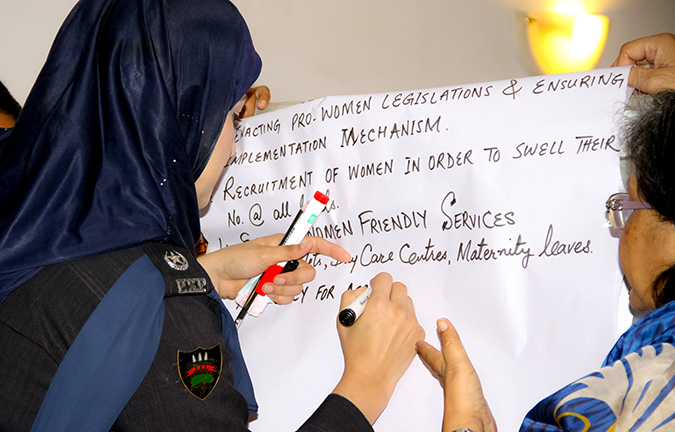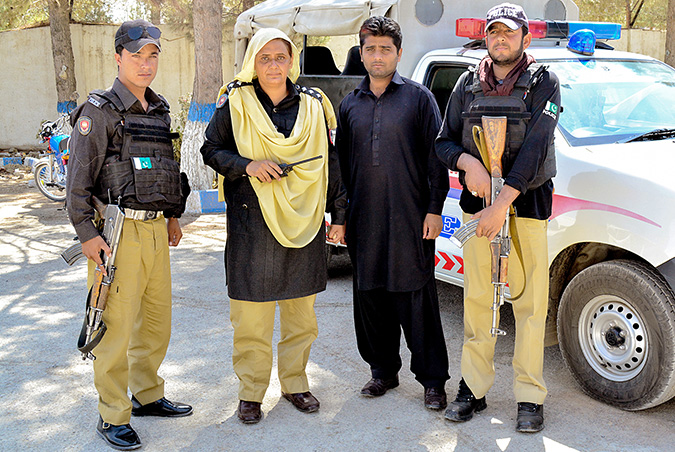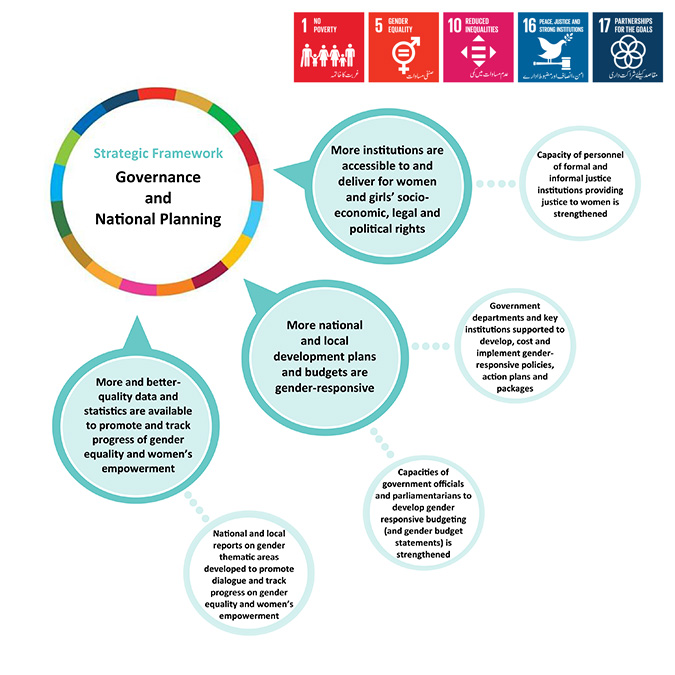Governance and National Planning

The Issue
National plans, policies, institutions and budgets are where governments begin to translate commitments to women into practical progress towards gender equality. Too often, however, they overlook measures to ensure that public services respond to women’s needs and priorities.
Viewing these dimensions of governance through a gender equality lens means putting aside the conventional assumption that they are gender-neutral. It entails comprehensively assessing gender gaps and identifying actions to close them. Changes to promote gender equality need to be backed by adequate funds, and systematically monitored for progress in reducing gender discrimination.
From the local to the global level, women’s leadership and political participation are restricted. Women are under-represented as voters, as well as in leading positions, whether in elected offices, civil service, private sector or academia. This occurs despite their proven abilities as leaders and agents of change, and their right to participate equally in democratic governance.
Structural barriers through discriminatory laws and institutions still limit women in becoming effective leaders.
How we will make a difference
UN Women will work with and support national and local stakeholders to ensure:
- Gender responsive development plans, budgets and systems of governance are in place
- Evidence-based data, statistics and reports are generated for designing policies, programmes and assessing progress
- Institutions are more accessible to and deliver equally for women and girls
Voices from the Field

Working fearlessly on the roads, breaking age old social taboos that women are supposed to stay indoors.
Shabana Habib Tareen - Deputy Superintendent Police - Traffic for Quetta, Balochistan - is known for bringing discipline on the roads, even in the worst of traffic jams, and is an advocate for the ‘Strengthening Rule of Law in Balochistan' initiative.
“I am proud of the fact that I have never worked less than men but have always contributed more than my male colleagues. I am the only women police officer trained in the Sihala Police Academy and have won many awards for my performance.
Being one of six sisters with a brother, my father always wanted his only son to join the police force - he didn’t. I then decided it will be me who will fulfill my father’s dream; now my two daughters are ready to follow in my footsteps.
As a female Police Officer, one question that is always in my mind “would a woman feel safe passing through this area?”
Women officers are not permitted to register a First Incident Report (FIR), a basic performance indicator.
We need women reporting centers for women victims as well as for women officers. For women victims because they hesitate in reporting crimes to males and for women officers to register and investigate the case."
